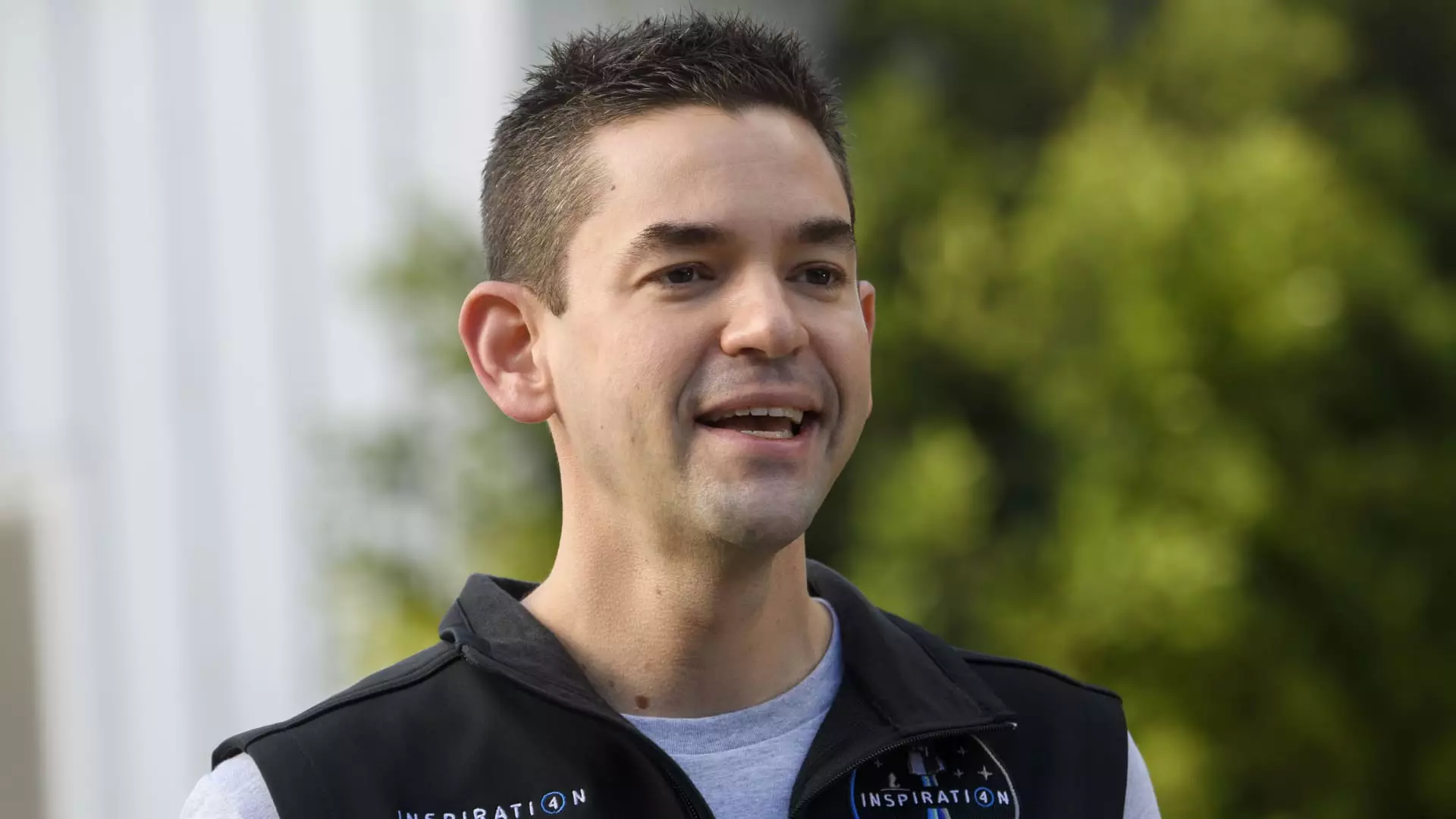In the realm of tech entrepreneurs, Jared Isaacman stands out for his extraordinary journey, merging the worlds of finance and aerospace. His recent foray into the political landscape, however, exemplifies both the capricious nature of politics and the challenges faced by those who dare to blur the lines between the business and political spheres. Following his nomination by former President Donald Trump to a NASA advisory role, Isaacman’s aspirations were summarily withdrawn, showcasing the unpredictable currents of modern governance. While most would retreat in defeat, Isaacman characterized the experience as “thrilling,” simultaneously highlighting a resilience not commonly seen in individuals subjected to political upheaval.
In an impactful letter to shareholders of Shift4, the payment processing company he founded at just 16 years old, Isaacman announced his resignation as CEO, moving into the role of executive chairman. This transition was not prompted by a lack of capability but rather a preemptive strategy to pivot away from corporate leadership should his political aspirations come to fruition. Given that his nomination never materialized, Isaacman’s decision underscores a commitment to adaptability—an essential trait for anyone navigating the ever-changing landscape of technology and politics.
Associations and Allegations: The Underbelly of Political Nomination
Isaacman’s withdrawal from consideration for a NASA role stemmed from what Trump described as “prior associations,” a vague term that many speculate refers to Isaacman’s financial contributions to Democratic candidates. While Isaacman regards himself as a “right-leaning” individual supportive of Trump’s agenda, the reality is more intricate. Political affiliations and prior donations can often complicate the appointment processes, especially in polarizing environments where allegiance is scrutinized. In a culture rife with partisan loyalty, Isaacman’s situation serves as a cautionary tale about the precarious balance between political ambitions and personal beliefs.
The lack of clarity surrounding Trump’s decision continues to fuel speculation. Isaacman himself has postulated that timing was indeed an orchestrated play, especially considering his close ties to Elon Musk, who has recently emerged as a critical voice against Trump. The implications of political affiliations among tech moguls play out in the corridors of power, where the interplay between influence, contributions, and loyalty can decisively tilt the scales of favor.
The Ripple Effect of Musk’s Influence
Isaacman’s relationship with Musk adds another layer of complexity to this narrative. Both men have navigated the tumultuous waters of technological innovation and its intertwining with national policies. Musk’s recent departure from a governmental role heightens awareness of the shifting alliances within the tech landscape and iterates the unpredictability of political support. Musk’s vocal criticism of Trump’s tax proposals aligns him with a broader movement of discontent that transcends idealogical lines and raises questions about fiscal responsibility and governance.
Despite the apparent fallout, Isaacman’s involvement with SpaceX—having commanded historic private spaceflights—brings a certain cachet that few can replicate. His ventures into space are not simply personal milestones but are emblematic of a broader ambition to propel humanity into new frontiers. The $27.5 million investment from Shift4 to SpaceX illustrates a partnership that transcends mere business, hinting at a visionary pursuit of collective advancement in space exploration.
Leadership Beyond Politics: A Commitment to Innovation
As Isaacman transitions to the role of executive chairman, his passion for Shift4 remains unwavering. In his announcement, he emphasized a commitment to innovation, stating, “I have been working since I was a teenager and not planning to stop now.” Such fortitude is commendable, especially in an age where complacency can easily take root in technology-heavy enterprises. The promotion of Taylor Lauber, a capable president, signals Isaacman’s confidence in the company’s future and ensures continuity in leadership.
Isaacman’s narrative demonstrates resilience and a willingness to confront political adversity head-on. The ambition that propelled him from a teenager to a leader in the tech industry is evident in how he navigates the complexities of opportunity and setback. His story serves as a reminder of the blurry lines between entrepreneurship and public service, where the stakes are invariably high, and the potential for greatness is as exhilarating as it is daunting. As the world watches, Isaacman’s ability to pivot and reinvent himself will be a critical component of his legacy, one marked not just by professional triumphs but by the courage to embrace life’s uncertainties.

